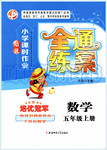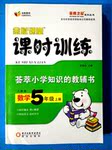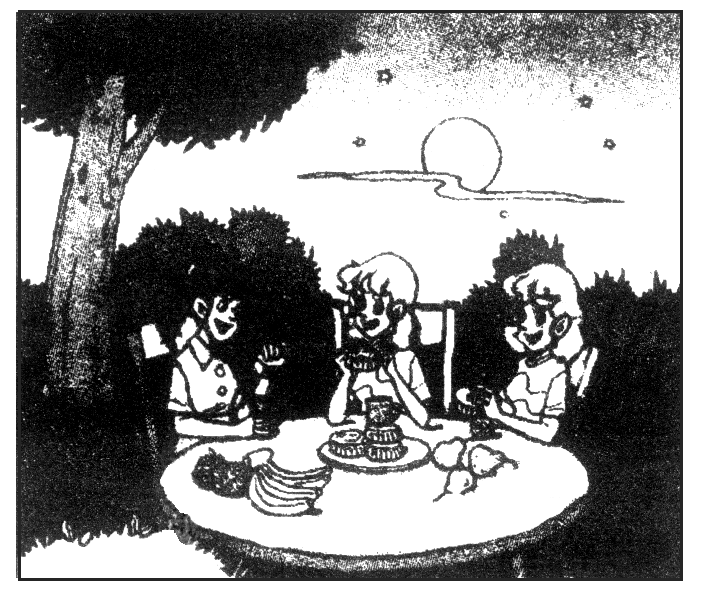题目内容
How does your brother go to school? He usually _________ to school.
- A.walk
- B.by bus
- C.walks
- D.taking a bus
试题分析:根据语境可知此句的含义是你弟弟怎样去上学,他经常走着去上学。因主语是he第三人称单数形式,故选C。
考点:谓语动词的基本用法
点评:乘坐某种交通工具常用介词in,on或by+交通工具。这种结构一般充当方式状语。而动词短语walk和take a bus是谓语动词常做谓语,其受主语的单复数形式的变化而变化。

 小学课时作业全通练案系列答案
小学课时作业全通练案系列答案 金版课堂课时训练系列答案
金版课堂课时训练系列答案 单元全能练考卷系列答案
单元全能练考卷系列答案看图完成对话中所缺单词.(首字母已给出)

H:Good e 1 ,Lucy and Lily,I'm glad you can come to my family. Are you h 2 ?
Li:A little.
H:Would you like m 3 ?
Lu:Yes,thank you. Look,Lily,mine has nuts i (4)
Li:Mine has nuts,too. I think it's nicer than yours.
H:Would you like a 5 one?
Lu:May I? Yes,thanks. Oh,this is nicer than the other one. It has something s 6 inside. Han Mei,what does Y 7 have inside?
H:Mine has an egg inside. It's d 8 .
Li:May I have a taste? Mmm! It's good,too.
Lu:I think the ones with nuts are the n 9 of all.
H:How about another one?
Lu:Oh,no,thank you. They are delicious, but I can't eat any m 10 .
|
(1)______ |
(2)______ |
(3)_______ |
(4)_______ |
(5)_______ |
|
(6)______ |
(7)______ |
(8)_______ |
(9)_______ |
(10)_______ |
看图完成对话中所缺单词.(首字母已给出)

H:Good e 1 ,Lucy and Lily,I'm glad you can come to my family. Are you h 2 ?
Li:A little.
H:Would you like m 3 ?
Lu:Yes,thank you. Look,Lily,mine has nuts i (4)
Li:Mine has nuts,too. I think it's nicer than yours.
H:Would you like a 5 one?
Lu:May I? Yes,thanks. Oh,this is nicer than the other one. It has something s 6 inside. Han Mei,what does Y 7 have inside?
H:Mine has an egg inside. It's d 8 .
Li:May I have a taste? Mmm! It's good,too.
Lu:I think the ones with nuts are the n 9 of all.
H:How about another one?
Lu:Oh,no,thank you. They are delicious, but I can't eat any m 10 .
|
(1)______ |
(2)______ |
(3)_______ |
(4)_______ |
(5)_______ |
|
(6)______ |
(7)______ |
(8)_______ |
(9)_______ |
(10)_______ |